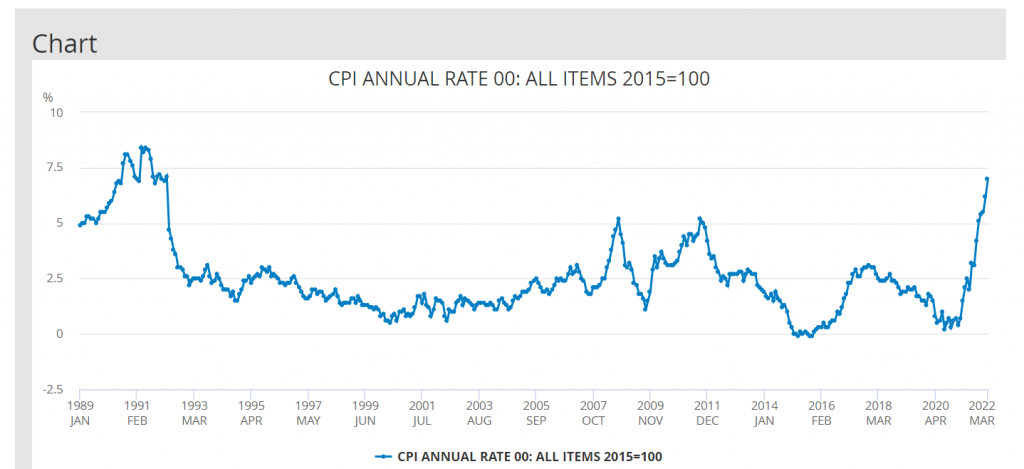The Bank of England’s latest interest rate hike to 1.25% in June might not take us anywhere near the terrifying heights of 17% seen back in 1979, but for many it may turn out to be the final financial straw. Compounded as it is by a cost of living crisis where inflation has already hit a 40-year high of 9.1% and is expected to go into double figures later this year, the economic situation is grim…

In 2019, the last full year before the pandemic struck, 3,540 self-employed traders or partners in unlimited partnerships were forced into bankruptcy and many more were bailed out by family and friends or by selling their homes. Since then, government support for businesses and restrictions of creditor enforcement during the crisis have reduced these numbers, but now the gloves are off for those in business without the protection of a limited company.
It is anticipated that we will soon be back at 2019 levels and higher.
Post-pandemic debt
That vital government support and protection during the pandemic has turned into a nightmare for some unincorporated businesses, as they face having to repay debt taken on through the Bounce Back Loan Scheme, commercial rent arrears and HMRC liabilities for VAT and payroll taxes deferred during the crisis.
Inflation and profit margins
It isn’t just consumers facing unprecedented inflationary pressures. Businesses are feeling the pain as well. The Office for National Statistics (ONS) reported that input prices for raw materials in April were 18.6% higher than a year earlier. Even the bravest entrepreneur might baulk at the prospect of asking their customers for a near 20% price increase to preserve their profit margin.
Labour shortages and pay hikes
Average pay levels in the private sector in Q1 2022 were 8.2% higher than a year earlier according to ONS. Their research showed that a third of all businesses were having to raise pay for new and existing employees, while over a quarter were experiencing staff shortages. Recruitment is nigh on impossible when for the very first time ever, the number of job vacancies in the economy are higher than the number unemployed.
Consumer confidence
The cost of living crisis is crushing confidence and sending consumer spending into reverse. The well-respected GfK Consumer Confidence Index hit an all-time low of -40 in April. A whole range of household name brands like Boohoo and AO World are talking publicly about significantly reduced consumer demand. The outcome for businesses of all shapes and sizes is going to be reduced revenues. On top of inflation-squeezed margins, the implications for profitability and viability will be devastating for some.
There is a way forward…
There will be some unincorporated businesses, especially those with a sound business model that can be tweaked to run on lower sales and thinner profit margins, which can weather this storm. Debt can be restructured if the medium and longer-term story is credible and the narrative is backed up by hard financial data and realistic forecasts.
Formal restructuring options
It may be necessary to go down the route of cutting a deal with creditors through an Individual Voluntary Arrangement (IVA) to negotiate a ‘hair cut’ for liabilities or to extend repayment terms.
Taking specialist advice
Pulling in independent experts to provide specialist advice and ensure you are following the correct path; not just for your business, but for you as a business owner will provide peace of mind. The earlier this is done, the wider the options available and the better the outcome. However dark the cloud, there’s always a chance of finding a silver lining of some sort.
If you are a sole trader or a partner in an unlimited partnership and have concerns about any of the points above, gain specialist advice from people who will be able to guide and support you, prior to any instruction (if you decide this is required).
Please contact our Partner Adrian Dante at our Maidstone Office . Opus ethos has always been to engage with those facing difficulties with a constructive and positive attitude.




